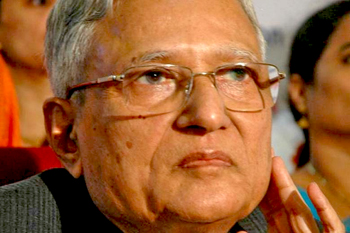New Delhi, Feb 10: The Supreme Court-appointed Special Investigation Team (SIT) probing the black money cases is set to widen its inquiry in view of new names of Indians with Swiss bank accounts emerging on Monday.

The SIT, however, said legal action would be taken only after verification of facts.
“The scope of investigation will definitely be widened due to the (emergence of) new names. We will have to identify those names and scrutinise them,” SIT Chairman Justice (retd) M B Shah was quoted as saying by a news agency.
He said there were some old names, but some new names have also come out.
“We can't take action on the basis of news reports only. We will first verify the claims from our side and then take legal action,” he said.
The revelations by a collaboration of “The Indian Express” and “Le Monde” of Paris with the International Consortium of Investigative Journalists (ICIJ) brought out names ranging from the richest Indian industrialist Mukesh Ambani, having an average joint balance of Rs 164.92 crore along with his younger brother Anil Ambani, to NRI businessman Naresh Goyal and politician Narayan Rane.
The list also included the names of Dabur Chairman Anand Chand Burman; Anurag Dalmia of Dalmia Pvt Ltd; Yash Birla Group Chairperson Yashodhara Birla, Rajan Prasad Nanda of Escorts; and Harshavardhan Neotia of the Ambuja Group.
SIT Vice-Chairman Justice (retd) Arijit Pasayat, who attended a meeting of the high-powered panel, said that it would “consider all new cases where there is evidence of black money”.
“If any new name comes and whichever way we have authentic information, we will act on it,” he said after the over-two-hour meeting, where existing cases of this nature were also reviewed.
The SIT had in December submitted a report to the apex court revealing that people on the HSBC list held Rs 4,479 crore in Swiss banks. The court had directed the Centre to ensure that the ongoing probe was completed by March this year.
It had suggested quoting PAN for cash and cheque transaction for payments over Rs 1 lakh to curb cases of slush money. Unregulated mining, Ponzi schemes, iron-ore exports, and the misuse of the export-import route, were identified as major areas prone to black money transactions.
The new names reported by the ICIJ said their records, apparently obtained through leaks from a Geneva-based branch of the HSBC, show that there are 1,668 Indians on it, while the number of actionable cases stands at 1,195 after taking into account duplication and some other factors.
Collectively, these accounts had a balance of $4.1 billion (Rs 25,420 crore) till 2007. The SIT is likely to discuss the new data in its next meet.





Comments
Add new comment